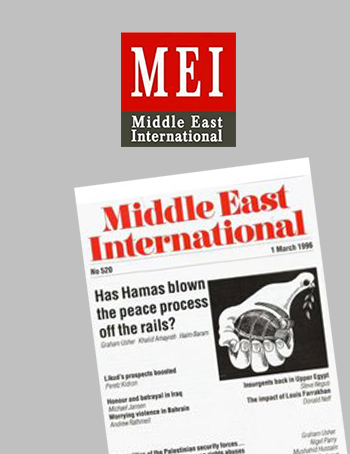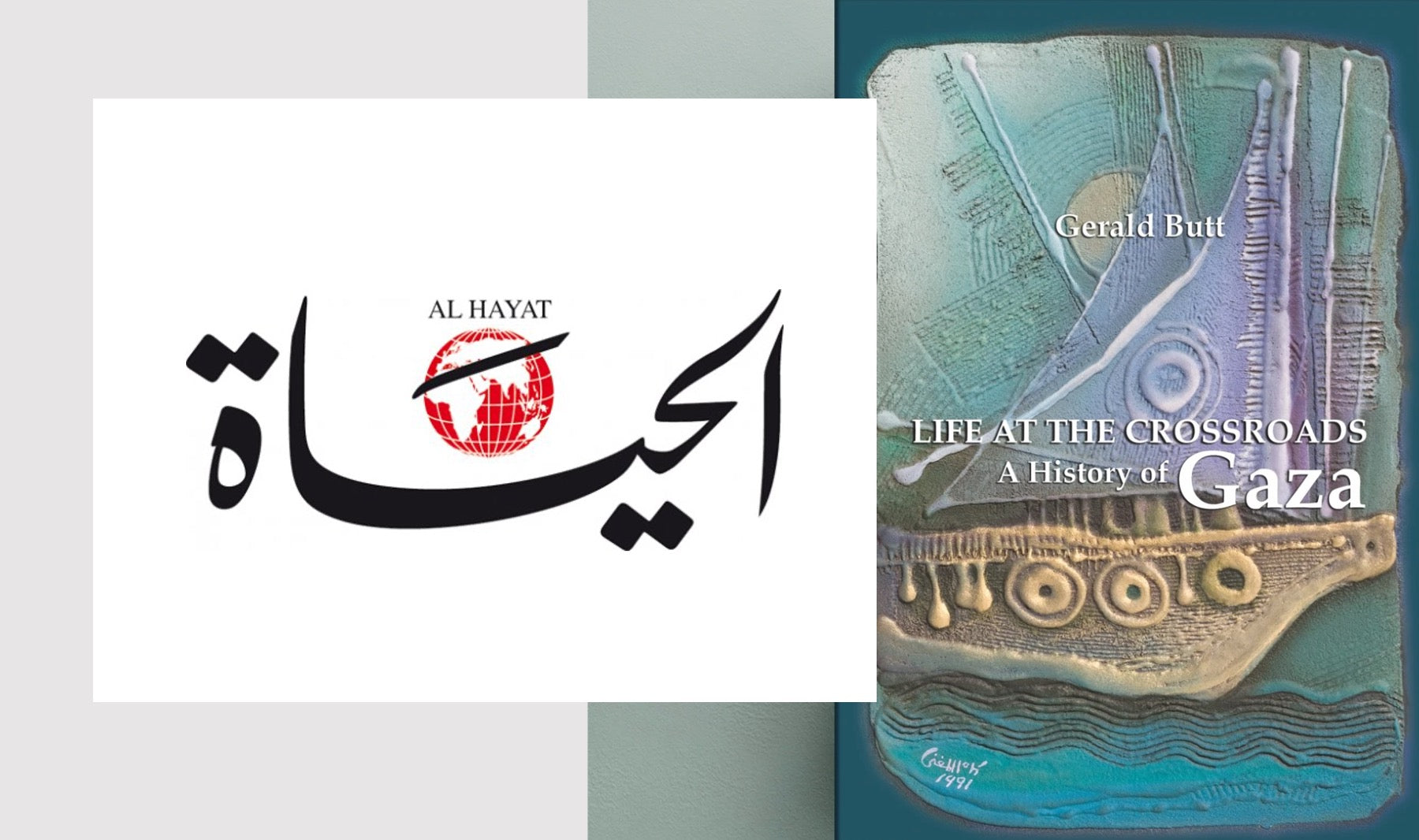
MIDDLE EAST INTERNATIONAL
Deluged by History
In this, the first comprehensive history of Gaza , Gerald Butt describes the rise and fall in the fortunes of this narrow strip of coast which, for over four millennia, has been a meeting place of European, Asian and African empires and civilizations, a crossroads for conquerors and a major Mediterranean trading port.
In this admirable "biography" Butt shows the modern reader, who thinks of the Strip as a vast refugee camp housing 800,000 Palestinians in slum conditions, that Gaza was once a robust city state which survived invasions by the armies of Egypt, Babylonia, Persia, Greece, Rome, Davidian Israel and Byzantium, the Arabs, Seljuks, Mamlukes, Turks and Crusaders. The waves f invaders brought to Gaza their cultures and technologies and fostered trade with the known world. Under the Greeks Gaza boasted a great library, under the Romans and efficient administration and some fine buildings, under the Byzantines a grand church raised by the Empress Eudoxia, a school of rhetroic, a forum, colonnaded streets and a municipal council. Butt quotes an Italian pilgrim who visited the city in 570 and found it "a lovely and renowned city, with noble people distinguished by every kind of liberal accomplishment".
Thus Butt demonstrates the West's unfairness in characterizing citizens of Gaza , generally known as the Philistines, a people of "material outlook indifferent to culture". The characterization was probably adopted from the Old Testament takes of the wars between the Philistines and the Hebrews.
The original Philistines were one of the mysterious "Sea People" who arrived on the southern and eastern coasts of the Mediterranean in the 12th century BC, settling in Gaza in 1175 BC. The Philistines were taller than the local peoples, they wore kilts and ribbed helmets, drove chariots, smelted iron and traded with Aegean islands. They established five city states along the southern Levantine coast, with Gaza as their capital. Though given an evil reputation by the Old Testament, the Philistines were certainly more cultures and civilized than their local Semitic antagonist. Philistia did not become a cultural backwater for another 2,000 years, and then only because the Seljuk conquerors devastated the area so extensively that it never recovered. Whatever was left of Gaza's rich history was lost during the fighting in World War I or looted by after its occupation in 1967.
Butt has done a service to truth by exploding this myth. His book is an important contribution to our understanding of the Middle East since it gives us perspective on a location deluged by history, a place which is now a cul de sac rather than a crossroads but could once again come to thrive if the regional peace process succeeds.
Review by Michael Jansen
Middle East International, issue no 520


